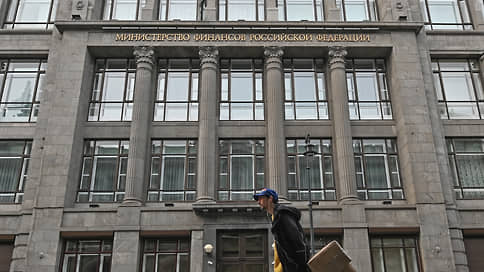OFZ hold a pause – Newspaper Kommersant No. 179 (7380) of 09/28/2022
[ad_1]

The plans of the Ministry of Finance to attract 40 billion rubles in the third quarter. failed to materialize on the public debt market. Against the backdrop of rising rates at the end of September, the ministry postponed two OFZ auctions in a row. The deterioration of the market situation has a negative impact on the corporate market, where placements have not stopped yet, but some issuers may take a break. In the fourth quarter, the Ministry of Finance may return to the practice of placements, but only if rates and risks are reduced.
On September 27, the Ministry of Finance announced the decision not to place OFZs, extending the pause taken a week earlier. Last Wednesday, September 21, the ministry collected bids for two issues of government securities, but due to the lack of proposals at acceptable price levels, it recognized the auctions as invalid.
Thus, out of the 40 billion rubles planned to be raised in September, was attracted only 10 billion rubles. at the auction held on 14 September. Mikhail Vasiliev, chief analyst at Sovcombank, believes that the Ministry of Finance could place the planned 30 billion rubles, but investors would demand higher premiums.
Deterioration of the market situation began September 16, after the meeting of the Bank of Russia. On it, the regulator expectedly lowered the key rate by 50 basis points (b.p.) to 7.5%, but not only did not announce the possibility of further reduction, but did not rule out its growth.
“In the future, the negative price dynamics intensified against the backdrop of statements about covering the increased budget deficit of the Russian Federation in 2023-2025 mainly through domestic borrowing, as well as as a result of expectations of an increase in geopolitical risks,” said Alexander Yermak, chief debt markets analyst at BC Region. In particular, the decision to conduct a partial mobilization to continue the NWO added to the nervousness of investors (see below). “Kommersant” dated September 22).
Against this background, the rates on the government securities market increased significantly. According to Alexander Yermak, last Monday, yields on long-term issues for the first time since May fixed significantly above the level of 10% per annum.
Over the week, they rose by 70-140 bp. On Tuesday, OFZs were able to rise in price, which led to a decrease in yields by an average of 25 bp. However, the yield of long-term issues remained close to 10.3-10.4% per annum. “The refusal of the Ministry of Finance to hold auctions can be regarded as support for the market,” Mr. Yermak believes.
Deteriorating market conditions may close the placement window for corporate borrowers, market participants believe. Until the end of September, a number of issuers, in particular R-Pharm, RN-Bank, Cherkizovo Group, etc., planned to conduct placements in total for up to 50 billion rubles. However, it is unlikely that even a part of them will enter the market before the end of the month, analysts say.
“The cost of borrowing in the current environment for companies may turn out to be much higher than what they expected, and this is not counting the premium for the risk of turbulence that investors may require,” says Vladimir Malinovsky, head of the debt market analysis department at Otkritie Investments. According to Pavel Vintin, director of investment banking services at Rosbank, those issuers who planned placements will either have to postpone them or find other sources of financing.
In the coming weeks, geopolitical news may keep the volatility in the debt market high, which will put pressure on the primary market. “As soon as the market calms down, then we will (place OFZ.— “b”),” said “Interfax” Finance Minister Anton Siluanov.
The previous pause, which began in February, dragged on for more than seven months.
In November and December, government bonds worth 562 billion rubles are redeemed, so, according to analysts, the Ministry of Finance could place a comparable amount in the fourth quarter if the geopolitical situation is stable.
However, in early December, an embargo on the purchase of Russian oil will come into effect in Europe, which, combined with the suspension of the key rate cut cycle, may prevent the Finance Ministry from attracting a large amount of funds. According to Mikhail Vasiliev, it looks more likely to attract 200-300 billion rubles. For the time being, the Ministry of Finance can afford to postpone the main placements until 2023, the expert believes, and, if necessary, use floaters – OFZs with a floating rate, which are in high demand among local investors.
[ad_2]
Source link





